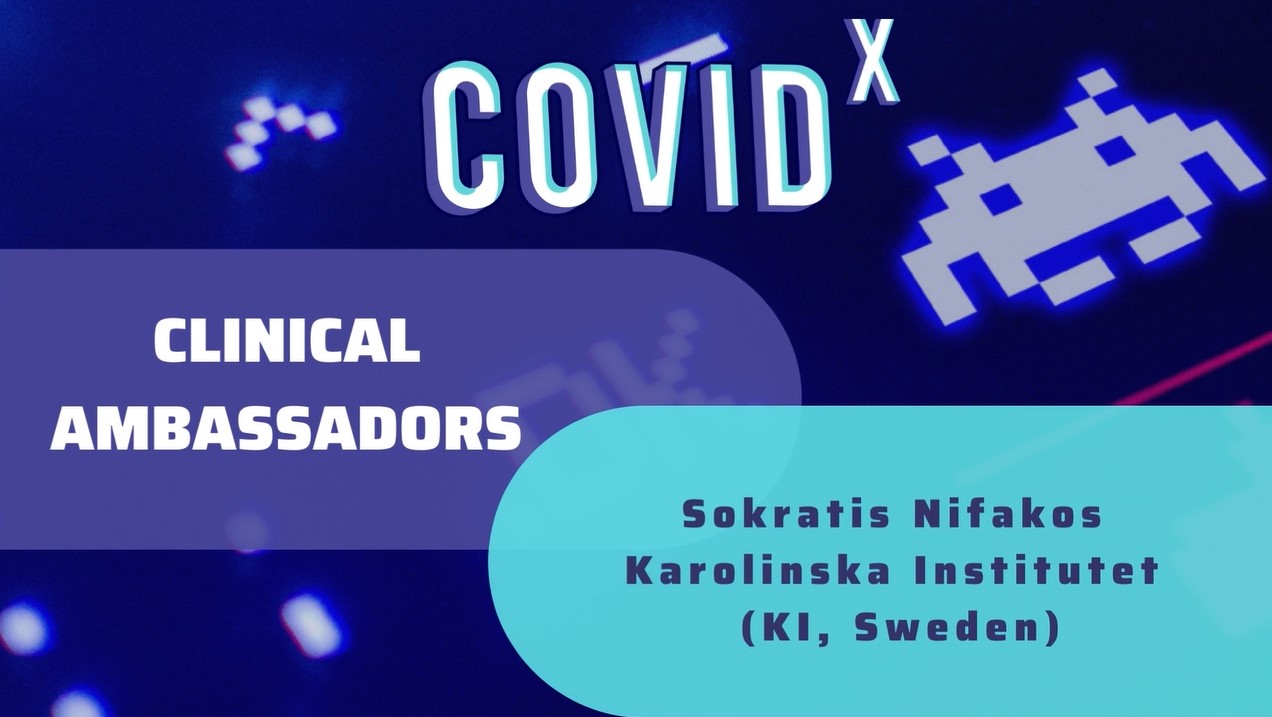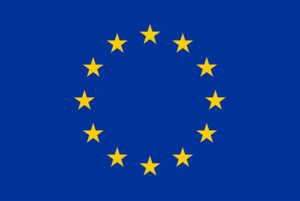Watch the Karolinska Institutet full interview at this link!
In this interview, COVID-X clinical ambassador Sokratis Nifakos is sharing his unique experience of participating in the project as a member of the KAROLINSKA INSTITUTET (KI), one of the COVID-X clinical partners.
Get to know what he said about the project, his organization’s experience of working with SMEs, the impact of the solutions and if he would recommend other hospitals to work with start-ups!
Meet the COVID-X Clinical Partner:
Karolinska Institutet (KI) is one of the world’s leading medical universities. KI accounts for over 40 per cent of the medical academic research conducted in Sweden and offers the country’s broadest range of education in medicine and health sciences. An Academic Health care system including research and education of the highest international quality is established with a close strategic partnership between Karolinska University Hospital and Karolinska Institutet.
Meet the COVID-X Clinical Ambassadors:
Sokratis Nifakos is a PhD student and system developer in the Health Informatics Center (HIC) of Karolinska Institutet. He has a background as a mobile and interaction technology researcher and professional with interdisciplinary experience in programming, cybersecurity, and mobile and web application architecture design and development. He holds a Bsc from Panteio University of Athens, Department of Psychology, Bsc in Computer Systems Engineering and Telecommunications from University of Seattle and Msc. in Medical Informatics from Karolinska Institutet. He has a strong track record in consultation, system development, management, and delivery. His particular areas of expertise are architecture and software engineering in concept and design for mobile web, iOS, and Android applications.
INTERVIEW:
- Why did you join COVID-X?
When the pandemic started, there was a need from the European Commission for common action in Covid management with the development of new tools for better management of the pandemic. So we are working in this health field. We were actually driving the idea of conducting something around the development of technical tools and the application within pandemic management. This call, was really interesting because it was a kind of urgent call from the European Commission and we were able to collaborate with SMEs that had already developed solutions and also being able to bring them together with healthcare organizations, the hospitals and the research institutes. So that was the reason we joined this common action together with the other partners in COVID-X consortium.
- What did you gain by participating in the project?
So far we have gained a lot of knowledge about AI tools and their applicability within the healthcare sector and the pandemic management. We have seen the barriers and the ethical issues we have and also when it comes to this kind of urgent management of the pandemic, we noticed how we can boost it a little bit with AI tools in order for it to be faster implemented and to get better results within the healthcare sector. Also, we exchanged knowledge between different countries, organizations and SMEs. We provided our experience within this field and I think one of the biggest advantages of this project is that we from the research side came closer with the SMEs so we had a communication channel between us and I think it was because of this situation, the urgency of the pandemic management.
- How was your experience working with a technical startup/SME? Please explain the benefits of using those kinds of solutions and share any quotes/testimonials from this experience.
I would say that the collaboration of companies and healthcare was enhanced through this program. We got the lessons learned from their side and they got the lessons learned from our side. And I think this is a very good opportunity for SMEs to come closer to the healthcare sector and understand better the challenges we have, but also to come closer to the research institutes. So we kind of has a triangle of collaboration between SMEs, the healthcare organizations and the research institutes. I think this program gave us the opportunity to come to closure, albeit unfortunately under the pandemic conditions. But, I think it was a very good opportunity to create this kind of framework for an ecosystem. So we have SMEs in the healthcare sector and academia.
- Why do you think other healthcare providers shall use the solutions?
Healthcare organizations have the opportunity to get a better understanding of well-developed artificial intelligence, analytics and diagnostic tools that can be tested on their premises. The virus is a challenge in the healthcare sector where we can see the barriers but we don’t have the funding and the resources in order to develop new technologies. So when it comes to the collaboration with the SMEs we get the new tools with a very good dynamic so we can easily test something in the real setting of the healthcare sector. I would like also to add here that the collaboration with the SMEs, healthcare sector and academia gave us the opportunity to have easier access to data which was not so easy before the pandemic. The strong collaboration in this program allows SMEs to have access to data and the healthcare organizations to analyze their data better with the tools that we have available in the program.
- What do you think is the impact of the overall programme?
The overall impact of the project is that, as I mentioned, this collaboration between SMEs, academia and the healthcare sector. We have tested and evaluated AI tools. We have seen new challenges and we are actually actively trying to enhance these collaborations we have in this program. I would say that we are not at a very mature level when it comes to the applicability of AI tools in the healthcare sector for different reasons. But through programs such as COVID-X, we can see that if we have strong collaborations between these three different entities, we can achieve better results faster and provide tools for improving the healthcare sector and improving the health of our citizens in Europe.






